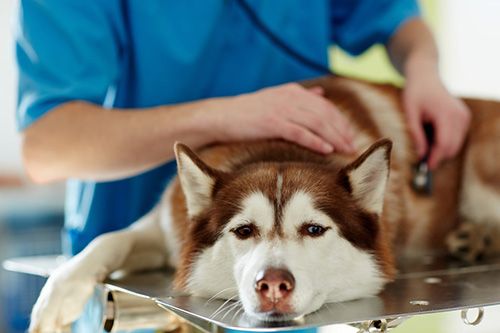
If your dog is a larger breed, you’ve probably heard the term “hip dysplasia” before; however, this is a serious condition that every pet owner needs to recognise. Hip dysplasia is a deformity in the hip joint that appears when dogs are in their early growth stages. In this article, Kirrawee Veterinary Hospital is exploring the causes and current treatments of hip dysplasia in dogs.
Hip dysplasia occurs when the ball of the femur cannot fit into the hip socket properly. This typically develops in young, growing dogs and some breeders notice the signs of hip dysplasia as early as four weeks of age. In other cases, dogs may not show symptoms until they are two years old. As dogs age, the problem worsens and can severely impact their quality of life.
The symptoms of hip dysplasia to look out for include:
There are many factors that contribute to the development of this condition. Large and giant dog breeds are far more likely to inherit hip dysplasia genetically, which is why breeders are required to carefully assess which pups they choose as breeding dogs in order to diminish the risk. These larger breeds include Labradors, Golden Retrievers, German Shepherds, St Bernards, Rottweilers, and more.
Additional environmental factors that contribute to hip dysplasia include:
In order to diagnose hip dysplasia in dogs, the team at Kirrawee Veterinary Hospital will undertake a comprehensive physical examination that may include x-rays to highlight motion problems and signs of arthritis. If it is found that your dog is suffering from hip dysplasia, we will recommend one of the following treatments.
To avoid surgery, your vet may recommend a weight management program, medication that supports and repairs cartilage, and medication for reducing pain and inflammation to give them the highest chance of recovery.
If you’ve noticed any of the above symptoms in your dog, or if you’d simply like to ensure there are no traces of hip dysplasia, bring your pet to Kirrawee Veterinary Hospital for a comprehensive examination. Make an appointment by calling (02) 9521 6422 or contacting us online.